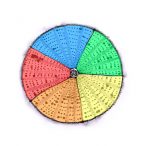“The first principle of Aboriginal learning is a preference for experiential knowledge. Indigenous pedagogy values a person’s ability to learn independently by observing, listening, and participating with a minimum of intervention or instruction. This pattern of direct learning by seeing and doing, without asking questions, makes Aboriginal children diverse learners”
(Battiste, 2002, p. 15).

Connecting with the Five Rs
-
Relevance: How is this experiential learning relevant to Indigenous ways of knowing and being?
-
Respect: Am I following protocols and practices that hold me accountable to facilitate this experiential learning?
-
Reciprocity: How is this experiential learning upholding principals of mutual accountability and solidarity?
-
Responsibility: What are the philosophical and spiritual traditions of this experiential learning? Where did it come from?
-
Relationships: How will this experiential learning provide opportunities to engage and cultivate relations?
![]()

